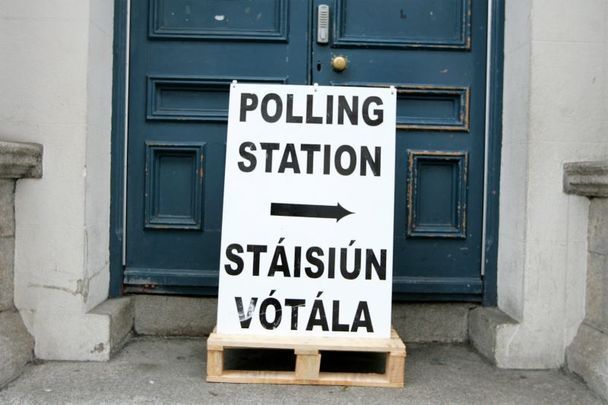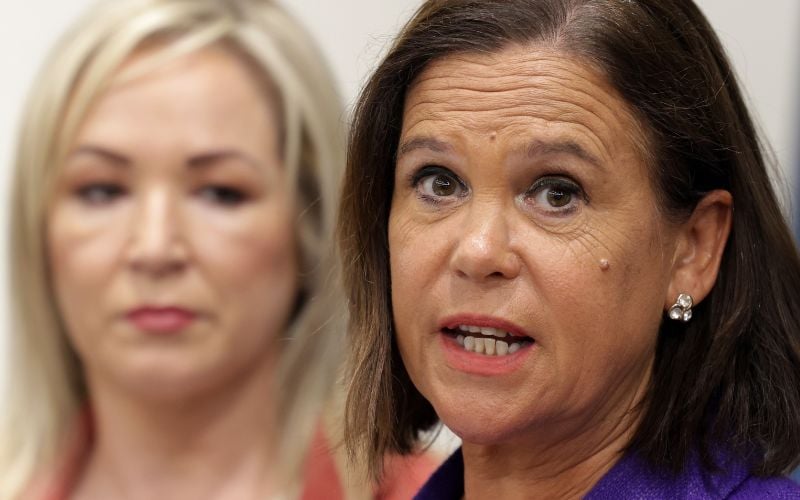A group calling for voting rights for the Irish diaspora has addressed a letter to Tánaiste and Foreign Affairs Minister Micheál Martin to express their disappointment about delays to a referendum on the issue.
Votingrights.ie, which advocates for voting rights for all Irish citizens living outside the Republic of Ireland, delivered the letter to Martin at the recent Global Irish Civic Forum in Dublin Castle.
"We wish to express our disappointment that a referendum granting citizens living outside the state the right to vote in future Presidential elections has been kicked to touch once again, and is now scheduled for 2025," the group said in the letter to Martin.
"This suggests the earliest these citizens will be able to vote for a President is 2032. The Convention on the Constitution recommended voting rights for all citizens living outside the state in 2013. A total of nineteen years will have passed before these Irish citizens will be given the opportunity to participate in a Presidential election."
The group states that there are over one million Irish people living overseas and a further 800,000 Irish citizens living in Northern Ireland and claims that Ireland's voting policy is among the most restrictive in the world.
"Most nations, including nearly all our EU peers, allow their emigrant citizens to retain their right to vote. Ireland does not," the group says on its website.
In its letter to Martin, the group made a number of demands, calling on the Irish Government to hold a presidential voting rights referendum.
"In his February 1, 2018, address to the Seanad, the Taoiseach (Leo Varadkar) promised to hold this referendum within two years, along with other referendums. Five years have passed and Ireland continues to remain outside global democratic norms and outside of EU mainstream thinking on voting rights."
The group also called for representation for the Irish diaspora in the Seanad and said it was an "astonishing failure" that no nationalists from Northern Ireland have ever been elected to the upper house of the Irish Government.
"During his term of office, the former Senator for the Diaspora Billy Lawless repeatedly called on the government to expand representation to citizens living outside the state to no avail."
The letter also calls for a change to Ireland's "outdated" electoral regulations, claiming that they are restrictive to citizens living outside the state.
"We believe that there should not be any time limits placed on voters simply because they are away from home on Election Day. This affects not only Irish citizens living abroad, but also their family members who may be abroad for life events such as births, deaths, and marriages.
"The requirement that one must be on the island, and on the right side of the border, to vote is a form of geographical gerrymandering. The continued refusal to grant non-resident citizens the right to vote is a sign of parochialism that further divides. It is hard to promote a shared Ireland when your own citizens aren’t allowed to vote for their own President."
The letter additionally notes that an absentee ballot system exists for members of the Defence Forces and diplomats serving overseas.
Votingrights.ie claims that this indicates that citizens do not need to physically be in Ireland to cast their vote and that emigrants can be granted voting rights if there is a "political will to do so".
"There is an urgent need to expand the absentee ballot process," the group said.
The letter also calls for a new relationship between the Irish state and Irish citizens living abroad.
" What is striking to us is the enthusiasm to engage with overseas citizens for economic purposes, and yet the refusal to allow those living outside the state any form of political representation.
"The relationship between the Irish State and its emigrant community has, in many respects, long been one-sided, despite the fact that emigrants have made an enormous contribution to the creation, foundation, and prosperity of the Irish State."
The group concluded the letter by stating that they are "unwilling" to accept the political status quo in Ireland.
"Millions of people are struggling to have their voices heard. In this situation, we would hope that the Irish State would find a new sense of urgency to advance a broad democratic reform agenda that would make Ireland a modern, 21st-century democracy."




Comments